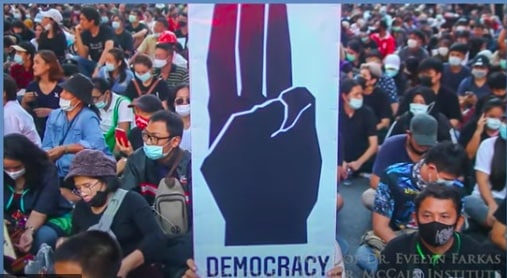President Biden is set to co-host the second Summit for Democracy beginning Wednesday.
The first such event was held in December 2021 as an effort to strengthen democracies worldwide in the face of the growing influence of autocracy.
Biden is co-hosting the three-day summit along with the leaders of Costa Rica, the Netherlands, South Korea and Zambia.
“Since 2021, the Summit for Democracy process has brought together hundreds of leaders from governments, civil society, and the private sector committed to strengthening democratic governance, protecting human rights, and advancing the fight against corruption,” Biden said in a joint statement with South Korean President Yoon Suk Yoel. “Participating governments have made hundreds of commitments to reform laws and policies, bolster transparent and accountable institutions, and contribute additional support to democratic reformers, journalists, and activists.”
The statement goes on to state that non-governmental organizations (NGOs) have used the summit to expand their work protecting the vulnerable and holding leaders to account, while corporations “have taken action to improve democratic resilience through their business practices and engagement with workers, communities, and other stakeholders.”
The White House announced that Biden would open the summit with a pledge for the U.S. to spend $690 million bolstering democracy programs worldwide.
Some 120 leaders have been invited to participate. On Wednesday, the summit will kick off with a focus on making “technology work for and not against democracy,” according to a senior Administration official.
Ukraine is taking part in the summit, with President Volodymyr Zelensky participating in a session virtually along with U.S. Secretary of State Antony Blinken. Zelensky is also expected to speak during Biden’s plenary summit Wednesday. Belarusian opposition leader Sviatlana Tsikhanouskaya is also expected to address the summit.
The summit does have its detractors. Jon Temin, Vice President of Policy and Programs at the Truman Center for National Policy, notes that it entails “too many carrots, too few sticks.”
“[T]he United States didn’t build an accompanying monitoring mechanism, making it difficult to track countries’ progress on the commitments they made,” he wrote. “Nor has the United States made defending democracy abroad a major foreign policy priority, a puzzling decision given that Biden has described the struggle between democracy and autocracy as ‘the defining challenge of our time.'”


